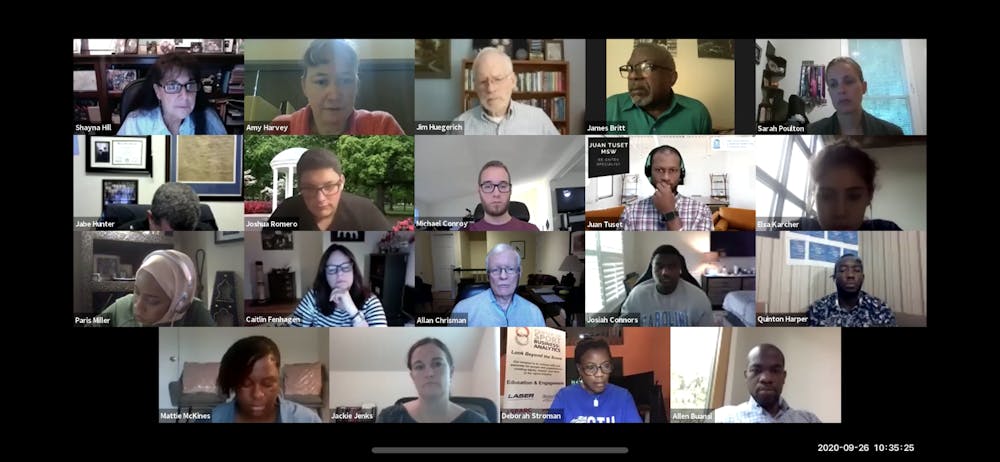Over Labor Day weekend, a fight erupted on the pool deck of our apartment complex. As their friends attempted to separate them, two drunken college men violently beat at each other for several minutes, one of them succeeding in knocking the other unconscious. Though we were concerned for the well-being of both students, calling the police barely crossed our minds — the student winning the fight was Black. Knowing the potential ramifications of involving an armed officer, we feared a more dangerous outcome than the fight that was already occurring, and did nothing instead.
Earlier this year, George Floyd’s murder triggered a resurgence of the Black Lives Matter movement and amplified calls for change to our current policing system. Just two weeks later, during the Campus Safety segment of our first-year orientation, the presenter repeatedly advised us to call UNC Police in any potential emergency situation. Not only did she fail to explicitly describe any of UNC’s other resources, but she also acted without any acknowledgment of the mistrust and fear of police that many students were likely feeling, especially in that moment of national reckoning with police brutality and racial injustice.
We left that presentation feeling uninformed and unprepared — UNC had failed to promote adequate alternatives to calling the police.
Last weekend, we found ourselves in yet another situation where our initial instincts were to call for help, but we hesitated to involve armed personnel. We immediately turned to Safe at UNC’s Emergency Support website hoping to find the list of alternatives that had been briefly alluded to during orientation. Instead, we found only four options: three sexual assault related crisis numbers and 911.
Hopeful that Campus Health might have counselors trained in emergency response, we checked their website for other dispatch options but were linked back to Safe at UNC and again directed to call police.
Ultimately, we chose to call the Orange County Rape Crisis Center. They informed us that while they do not provide emergency dispatch themselves, the Chapel Hill Police Department does employ four crisis counselors that can accompany armed police officers upon request. By the time we had gotten off the phone with OCRCC, it had become clear that there was no emergency. However, our research made clear that when we call for in-person emergency support at UNC, a weapon will always be present.
This means that there are students on this campus, like us, who will hesitate or refuse to call the police in emergency situations. Regardless of whether students personally trust the police, if they find themselves in a dangerous situation, the hesitation of others may put them at risk of not getting help. This lack of trust and hesitation is a detriment to our collective safety.
Though we do not know the exact solution to this issue, we do know of other cities that have implemented unarmed options and saved millions of dollars per year as a result.
Take Eugene, Oregon (home to the University of Oregon), for example: their 31-year-old CAHOOTS program, which responds to 17% of 911 calls, dispatches a pair of unarmed personnel, highly trained in de-escalation and psychological crisis response. CAHOOTS clinic coordinator Ben Brubaker estimates the program saves the city of Eugene $15 million a year.




